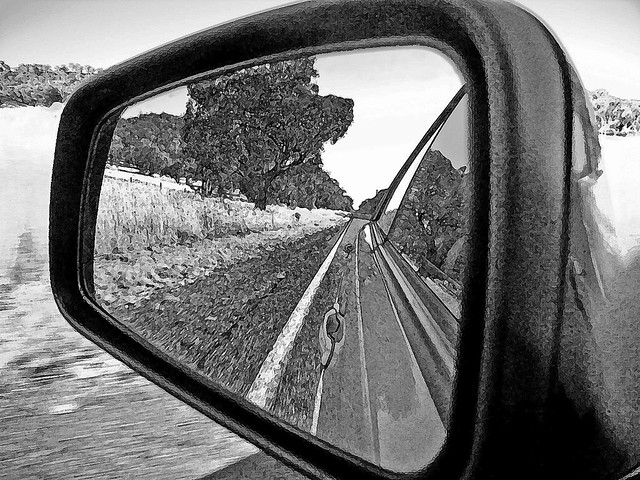Well. This has been a year, hasn't it? I don't think I've had a year before with so much in it, for so many different reasons. So settle in for a bit - this is probably going to be a lengthy post.
The start of this year saw me preparing for a wedding, and preparing to enter into a marriage relationship with my wife, Thalia. As is fairly typical of a wedding, it tended to consume a fair chunk of our time, and plenty of things were needing to be done last minute, or sudden hurdles jumping up at us (like dogs eating all of the butterflies that were supposed to go on our cake - literally all of them!). But it ended up going well. It's hard to remember much of that day, or much of what happened leading up to it - there was just so much happening. I had good fun not telling my wife what I was going to be wearing to the wedding, though! XD I said that because I couldn't see what she was wearing, she couldn't see what I was either ;) (we had four colours for our wedding - purple, pink, green, and blue, which meant that I was wearing all of them!)
After that, we had our honeymoon down in Tasmania. And we had so much fun, and really enjoyed ourselves. It's such a beautiful place, and we look forward to heading back down there at some point (maybe to stay, who knows?). Then we started to get set up in our new place - which Thalia had already been living in for a few weeks, but it was a bit different both living under the one roof, and finding room for all of our things in this little space that was now ours. We learned quite a bit about marriage in those first weeks, and living together - there are plenty of things that you can't really be prepared for, or know how you'll react to until you're in the middle of it. You can try, of course, and I'm not saying you shouldn't take time to prepare for things, and take the time to make sure that this is what you are wanting for your relationship (because that is super important - marriage isn't for everybody, and neither is living together, and that's totally okay) - but there's always going to be an element of uncertainty there that you can't get rid of, no matter how hard you try. I think it's the same with anything new. And particularly with many Christian marriages, there's quite a bit that's new and different all at once - moving in together, sex, suddenly being around each other 24/7 rather than just in spare time, figuring out what's different in a marriage relationship compared to a dating/engaged relationship - so that can be stressful.
So, in some respects, Covid came as a blessing in disguise when it hit. It meant that we had a bunch more time together than most new couples to work through all of this. But it was still scary when it happened.
In school, you learn about big events in history, like world wars, or the great depression, or....pandemics. But you don't expect to be a part of them. And yet, here we were. Everything was shutting down, everything was going crazy - but we were doing okay, in comparison to many. My work hours didn't change; I was mostly working from home anyway, so I just changed to only working from home (which was weird, and had its own issues, but it was okay) - and my wife was working at a before-and-after school care facility, which was still operating because the school had many parents that were essential workers. So we didn't have any issues financially - which was more than many people could say. Emotionally and mentally were different stories, of course, and we both struggled in our own ways. As I've mentioned before on here, I tend to get much of my energy from interactions with people. I was having plenty of interaction with my wife, of course - but she has a wealth of health issues, which often means that she doesn't have as much energy for interaction as she'd like. And I would use a good portion of my own energy helping her with those health issues - or because she was drained, I'd feel drained. And that's not her fault, or something she could do anything about; that was just how things were. But not being able to go out and interact with other people, and get energy from them, was challenging.
I think that's why, in the latter half of the year, I prioritised so much moving into a job that would mean I was interacting with people. I didn't know whether or not I would be able to find something - so many people were trying to find work, and not getting anywhere - but I applied for two positions, and got both of them. I can't really tell you how, I'm not sure how it worked out either. But it did. One I didn't end up liking, and so I finished up with it pretty quickly - but the other one I'm still doing now, working at a museum in Sydney. It's a really old building, and a great team I'm working with, and I get to have fun with kids for much of my working days. So I'm really enjoying it.
For my other work at church this year, I had to learn a bit of a new skillset - we did church online via Zoom, and that meant figuring out how to do music online through that. We tried doing it live at first, but the audio quality was always pretty atrocious. So we quickly moved to pre-recording - and, because of Covid, each person in the band did the recording at their house, and I put the videos together. I've been using DaVinci Resolve to do it this year, which has worked fairly well, and I've enjoyed fiddling with it - for a free software, it's pretty great, but it does have its bugs. It was fun to play with, though, and it let me do some bits and pieces that you can't really do with a live performance. As some restrictions lifted, we moved to recording as a group in the church, even using multiple camera angles - which looked pretty good, if I may say so. Youth group online was interesting as well, but it went pretty swimmingly - and we had good numbers through the whole stint of doing things online. We've gone back to in-person services over the last month and a bit, and it's been going well so far - the situation is under control enough in Australia that that's been doable, and it's been nice seeing people again.
Over this year, having a lot more time to myself, it's also helped me to explore myself quite a bit more. I've embraced my autism and neurodivergence a lot more - I think working as part of a company that helped to employ people on the spectrum helped with that quite a bit, and I'm grateful for that. I'm finding more and more people that I connect to - content creators and the like - that are on the spectrum and speaking about issues relevant to autistics or ND (neurodivergent) folks, and that's been awesome. There's more I've been exploring as well, that's connected in many ways - but that will need to wait for a bit before I talk about it publicly. Some things need a bit of processing time.
This year I started seeing a psychologist again, and then a counsellor. And that's been really helpful. It's hard to define the negative impacts that this year has had, because there have been so many things happening at once. It's difficult to isolate the issue, when nothing is isolated. That's the complexity of psychology, I suppose.
I was also part of an amazing production of Death Of A Salesman with Campbelltown Theatre Group, which went fantastically - sold out performances! It was fantastic being part of great theatre once again, and I really enjoyed working with many old friends. And I'm looking forward to hopefully doing so again in the new year.
....which brings us to tomorrow, and 2021. The new year. In some ways, it's hard to know what to expect. This year has thrown so many curveballs, it feels unwise to set too much in concrete. But I'm grateful to still have the work that I have - and to have work that I enjoy doing, for this season at least. I'm grateful to be able to spend time with people I enjoy being around, and to look forward to more of that. I'm looking forward to exploring myself more, and better defining what that means and looks like for me. I'm looking forward to more time with my wife, and supporting her in the work and studies that she's pursuing. I'm looking forward to supporting a couple of young guys at my church, who I've known since they were in year 8, as they come to finish high school next year and themselves look forward to the next chapter of life. But as with most years, there's plenty of uncertainty, and things I don't know. For the most part, though, I'm looking into this next year with positivity.
A couple of last things before I wrap this up. Firstly; most people do fireworks and staying up until midnight as their New Years thing. I'm not much of a fireworks person, though - so instead, I watch the first sunrise of the new year with my wife. It's a tradition I've borrowed from a good friend of mine, that I very much treasure. Perhaps something for you to consider as well?
And secondly - the new year is always tinged with sadness for me, because four years ago, on January the 2nd, my cousin died. He wasn't much older than me. He died in a car crash, and as far as we know, not for anything that he was doing wrong (not speeding, drinking, anything like that). It served as a startling reminder to me that life is extremely fragile, and precious. You never really know which day will be your last, or what the next day will bring. So I don't tend to plan for years in the future - because I don't know if those years will ever come. I don't know if next week will even come. But each day, I try to look back and ask myself - "If I died today; what is one thing I did today, that I would be grateful that I had done?" Most days, I can think of something. But most days, I know there's also plenty that I leave until the next day - or I'm not as other-focussed as I could be, or using the precious time I have as well as I could. But I can't change what I did yesterday, or what has gone before. All I can change is what I do now, and into the future. It's a hard thing to balance - but I hope that this coming year, I can be better at doing that. How about you?



